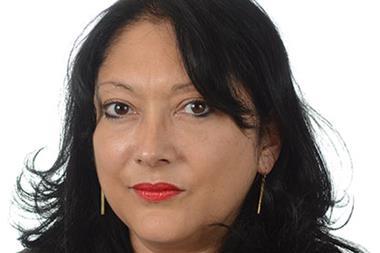This time last year, I said 2015 could be a vintage year for real estate and indeed it was.

Commercial values rose, rents moved up, incentives fell and debt availability increased. The FTSE 350 real estate index outperformed the wider FTSE all share index for the fifth year in succession.
Inflation remained well below expectations, so even the governor of the Bank of England was wrong-footed on when to raise interest rates. The Tories won the election outright. All seemed well set and I could focus on helping us leave the EU.
But what has happened in the world economy? Is it all going wrong for the UK? Where does this leave our property markets? Have they peaked?
With many parts of the developed world still barely growing after the financial crisis, it will continue to be a bumpy recovery. Most inconveniently, the major global oil producers are fighting to see who blinks first. At the same time, the Chinese economy is stuttering to a supply side halt, waiting for their consumers to catch up.
To make matters worse, the US raised rates for the first time in almost 10 years, at just the wrong time, as manufacturing in the US slips back into recession. The banks that lent hundreds of billions of dollars to shale gas producers could soon be nursing huge losses.
Although UK consumers are benefiting from lower fuel bills, they appear to be saving - not spending - the weekly difference. Major investment is being slashed in the energy sectors and costs cut.
The truth is deflation is now a bigger risk in many developed countries than inflation. Those economists who had been fretting that quantitative easing would lead to inflation are licking the wounds of their predictions. The European Central Bank has failed again to reflate the eurozone, which now has its lowest rate of inflation since the start of the euro. It has averaged 0.3% over the past few years - way below the current 2% target, which will be lowered to 1% by 2018. All this is before countries start to leave the euro over the next few years.
Equity markets will see dividends come under huge downward pressure across many sectors as companies try to preserve cash. Sovereign debt rates continue to fall: you now receive a negative 0.3% per annum for five-year German bunds, and 10 UK gilts yield under 1.7% and could possibly fall to around 1.25% over the next few years. This means that after seven years of almost zero interest rates, it is actually still just the early stages of a 20-30 year flat line cycle. The thirst for income must become ever greater and property is still showing remarkably high relative yields, especially in the UK given its economic outperformance.
With little commercial property being built outside London, and supply reducing as offices are converted to residential, the investment stock is not keeping pace with the current and potential flows of money from all over the world. Throw some very useful rental growth into the cocktail and you have a serious recipe for yields to fall by 150-200 basis points across many types of commercial property over the next two to three years. Surely old, secondary multi-let industrial estates could not trade at 5%, I hear you say. Remember when we said that Bond Street could not go lower than 4%, then 3%, now 2%?
If it is the safest, most liquid and transparent freehold in the world, UK property could become almost like gold, with the added advantage that you can receive an income while you look at it.
Richard Tice is CEO of Quidnet Capital





























No comments yet